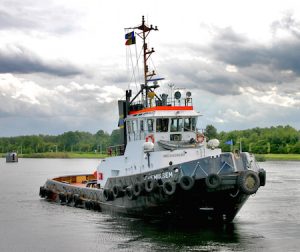Hurt Working On the Water? Kentucky Workers’ Compensation Vs. The Jones Act (Admiralty Law)
Posted on Thursday, July 17th, 2014 at 7:48 am
 Kentucky has a greater length of navigable waterways and streams than any other contiguous state, but many Kentucky attorneys know precious little about admiralty law. At Lawrence & Associates Accident and Injury Lawyers, LLC, we represent injured workers every day both in state based Worker’s Compensation and through the federal maritime courts. At our Fort Mitchell, Kentucky office, we fight for injured workers’ rights!
Kentucky has a greater length of navigable waterways and streams than any other contiguous state, but many Kentucky attorneys know precious little about admiralty law. At Lawrence & Associates Accident and Injury Lawyers, LLC, we represent injured workers every day both in state based Worker’s Compensation and through the federal maritime courts. At our Fort Mitchell, Kentucky office, we fight for injured workers’ rights!
Compensation Via The Jones Act
The Jones Act (Admiralty Law) and Kentucky worker’s compensation systems offer very different remedies. Both the Jones Act and unseaworthiness claims under general maritime law allow for damages that are very similar to damages for other tort cases based in negligence. The plaintiff can present and recover for past and future medical expenses, past lost wages and future loss of earning capacity, and past and future pain and suffering.
Compensation Via Kentucky Workers’ Compensation
Worker’s Compensation claimants get Permanent Partial Disability. Permanent partial disability simply takes an impairment rating created by the American Medical Association, multiplies it by the employee’s average weekly wage and some arbitrary, statutorily derived factors, and then presents a weekly amount to be paid to the employee over the course of 425 weeks. This weekly sum replaces all lost earnings and pain and suffering damages that could be received in a trial.
If You Are Truly Injured, a Trial in Maritime Court Could Provide the Most Compensation
Although there are some other benefits received under the worker’s compensation system that can match or offer alternatives to a trial’s more traditional damages, generally an injured worker will receive greater damages via trial than through Worker’s Compensation. The only exception to this rule is a plaintiff that is not seriously injured, and who is likely to return to work with no impairment whatsoever. In that case, the lower cost and relative speed of the worker’s compensation system is an advantage to the plaintiff. Further, worker’s compensation allows for temporary total disability at two-thirds of the plaintiff’s average weekly wage until the injured worker reaches maximum medical improvement or returns to work. Maritime law’s corresponding benefit, Maintenance, is merely the replacement cost of daily expenses and is always far lower. So an injured worker whose damages are almost exclusively past, related medical bills and missing pay during a short period in which he or she cannot work may prefer the worker’s compensation system.
If you or someone you know has been injured on the job on the water, contact Lawrence & Associates Accident and Injury Lawyers, LLC today! We can help you get the benefits that you deserve!
Contact Us (859.371.5997) for a Free Consultation










